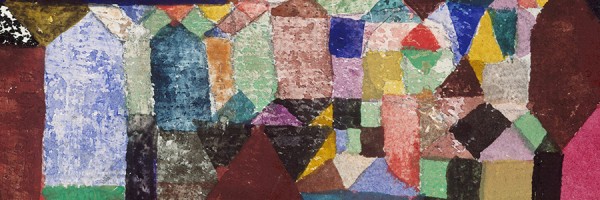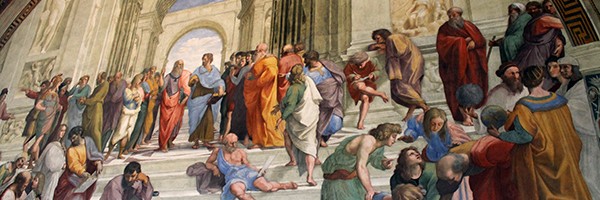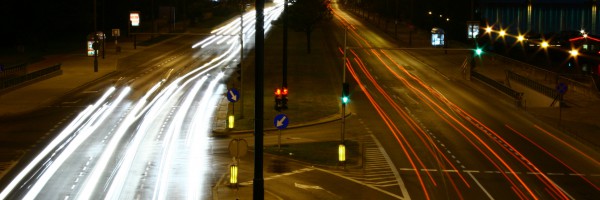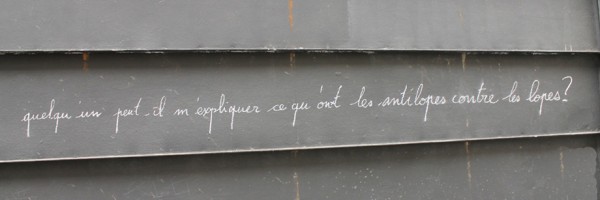Euroacademia Conferences
 Europe Inside-Out: Europe and Europeanness Exposed to Plural Observers (9th Edition) April 24 - 25, 2020
Europe Inside-Out: Europe and Europeanness Exposed to Plural Observers (9th Edition) April 24 - 25, 2020 Identities and Identifications: Politicized Uses of Collective Identities (9th Edition) June 12 - 13, 2020
Identities and Identifications: Politicized Uses of Collective Identities (9th Edition) June 12 - 13, 2020 8th Forum of Critical Studies: Asking Big Questions Again January 24 - 25, 2020
8th Forum of Critical Studies: Asking Big Questions Again January 24 - 25, 2020 Re-Inventing Eastern Europe (7th Edition) December 13 - 14, 2019
Re-Inventing Eastern Europe (7th Edition) December 13 - 14, 2019 The European Union and the Politicization of Europe (8th Edition) October 25 - 26, 2019
The European Union and the Politicization of Europe (8th Edition) October 25 - 26, 2019 Identities and Identifications: Politicized Uses of Collective Identities (8th Edition) June 28 - 29, 2019
Identities and Identifications: Politicized Uses of Collective Identities (8th Edition) June 28 - 29, 2019 The European Union and the Politicization of Europe (7th Edition) January 25 - 26, 2019
The European Union and the Politicization of Europe (7th Edition) January 25 - 26, 2019 7th Forum of Critical Studies: Asking Big Questions Again November 23 - 24, 2018
7th Forum of Critical Studies: Asking Big Questions Again November 23 - 24, 2018 Europe Inside-Out: Europe and Europeanness Exposed to Plural Observers (8th Edition) September 28 - 30, 2018
Europe Inside-Out: Europe and Europeanness Exposed to Plural Observers (8th Edition) September 28 - 30, 2018 Identities and Identifications: Politicized Uses of Collective Identities (7th Edition) June 14 - 15, 2018
Identities and Identifications: Politicized Uses of Collective Identities (7th Edition) June 14 - 15, 2018

Identities and Identifications: Politicized Uses of Collective Identities (6th Edition)
22 – 23 June 2017
Villa Vittoria – Palazzo dei Congressi
Florence, Italy
The 6th Euroacademia International Conference ‘Identities and Identifications: Politicized Uses of Collective Identities’ aims to scrutinize the state of the art in collective identities research, to bring once more into debate the processes of identity making, identity building in both constructivist or de-constructivist dimensions. The conference will include a wide variety of contributions on identity making practices while fostering a critical assessment of intended or unintended consequences that lead to the politicization of identities. It is the aim of the Euroacademia conference to open the floor to dynamic multi-dimensional and inter-disciplinary understandings of identities in their historic formation or in the way they shape the present and future of organizations or communities. The conference however seeks also to integrate and address the misunderstandings or misconceptions implicit to identity formation practices. A focal place will be given to methodological refinement and innovation in the research of identities in a broad spectrum of disciplines.
Euroacademia aims to bring together a wide network of academics, researchers, practitioners and activists that are willing to share and open to debate their research on identity related topics. Disciplinary, trans and inter-disciplinary approaches, methodological assessments and recommendations, single case studies or cross-sectional analyses, reflective essays, experience sharing or works addressing new puzzles are all welcomed.
Conference Panels
Theorizing Identity and the Self(Section One): Personhood, Recognition, Trust and Ambivalence
Narrative Identities: Intellectual History Readings of Discursive Identity Making Practices from Fiction to Personal Archives
(En)Gendering Identities: Gender Narratives and Identities as Social Constructs
Theorizing Identity and the Self (Section 2): Makings of the Self from Constitution, Structuring, Moral Evaluation and Affectivity to Collective Identitarian Claims
Art, History and Identity Making: Visual Narratives of Identity
Identity and the ‘Visual Turn’ in Social Representations: From Performing Arts and Visual Discourses to Urban Image Construction and Change
Identities as Endogenous Factors in Explaining Socio- Political Behaviors: Historical and Political Readings of Social Identitarian Claims

Europe Inside-Out: Europe and Europeanness Exposed to Plural Observers (7th Edition)
28 – 29 April 2017
5* Hotel Infante Sagres, Porto, Portugal
Europe became in the 20th century an elaborated yet contested notion as a particular field of European studies emerged and extensive and diverse research was directed recently towards an intensified search for what Europe is about. The creation of the European Union made things even more specialized and increased the stake of methodological rigor as more and more Europeans are affected by the decisions taken in Brussels. The number, diversity and quality of research projects focused on European issues is unprecedented, yet, as it is usually the case with specialization it gradually led to discursive communities that rarely meet and debate their approaches in open floors together with peers from other continents, academic traditions and cultures. It is the aim of this conference to build a bridge among specialists from different regions, academic traditions and cultures that share a common interest in studying and addressing Europe as a reflexive concern. The current political and cultural context requires even more nowadays a deeper reflection on the future of Europe.
What is Europe and its place in the world? Is there something particular that sediments in time a ‘European way’? How does Europe see itself and how do others see it? Is Europe inclusive or club-based exclusive? Is Europe becoming a normative power or just envisages itself as one? Is the European multiculturalism a fact or an ideal? Is the European Union a reflection of Europe or an appropriation of it? These are just few questions out of an enormous space for inquiry that are to be addressed and confronted within the topic of the conference.
The Euroacademia International Conference ‘Europe Inside-Out: Europe and Europeanness Exposed to Plural Observers’ became a regular event to take place in every year in a different European location. After six successful editions – in Vienna, Paris, Prague, Athens, Barcelona and Nice – Euroacademia moves the stage of reflection, sharing, dialogue, debate and research dissemination on Europe to Porto . Join us!
New Proposed Panels
Thinking Europe: Understandings of European Identity Formation and Inclusion/Exclusion Nexuses
Performing Identities and Assessing Multiculturalism in Intellectual and Literary Narratives: Post-Colonial Readings
Migration and Alterity Making Practices in Europe: Gender, Religion and the Geographies of Orientalism
Europe and the EU: Assessing the EU Crisis, the Politics of Europeanization and Claims of Normative Influence
Urban Transformations, Transition and Change in European Urban Image Construction
Performing Identities through Visual Narratives: Non-Normative Bodies, Corporeality and Violence in Theater and Visual Representations
Thinking Europe: Philosophy, Autonomy, Culture

Re-Inventing Eastern Europe (The 6th Edition)
27 – 28 January 2017
4* Moskva Hotel, Belgrade, Serbia
Keynote Speaker: Itai Sneh (John Jay College, The City University of New York)
The 6th Euroacademia International Conference ‘Re-Inventing Eastern Europe’ aims rather than asserting to make a case and to provide alternative views on the dynamics, persistence and manifestations of the practices of alterity making that take place in Europe and broadly in the mental mappings of the world. It offers an opportunity for scholars, activists and practitioners to locate, discuss and debate the multiple dimensions in which specific narratives of alterity making towards Eastern Europe preserve their salience today in re-furbished and re-fashioned manners. The conference aims to look at the processes of alterity making as puzzles and to address the persistence of the East-West dichotomies.

Identities and Identifications: Politicized Uses of Collective Identities (Fifth Edition)
9 – 10 December 2016
Centro Congressi – Piazza di Spagna
Rome, Italy
The Fifth Euroacademia International Conference ‘Identities and Identifications: Politicized Uses of Collective Identities’ aims to scrutinize the state of the art in collective identities research, to bring once more into debate the processes of identity making, identity building in both constructivist or de-constructivist dimensions. It is the aim of the Euroacademia conference to open the floor for dynamic multi-dimensional and inter-disciplinary understandings of identities in their historic formation or in the way they shape the present and future of organizations or communities.
Euroacademia aims to bring together a wide network of academics, researchers, practitioners and activists that are willing to share and open to debate their research on identity related topics. Disciplinary, trans and inter-disciplinary approaches, methodological assessments and recommendations, single case studies or cross-sectional analyses, reflective essays, experience sharing or works addressing new puzzles are all welcomed.
Conference Panels
Philosophy and Identity: Re-Thinking Authority, Subjectivity and Moral Diversity
Theorizing Collective Identities: Social Norms and the Self/Others Nexuses in the Dynamic Formation of Collective Identities and Social Movements
Identities as Endogenous Factors in Explaining Socio-Political Behaviors: Historical and Political Readings of Identitarian Claims
(En)Gendering Identities: Gender Narratives and Identities as Social Constructs
Performative Identities: The Relationship between Identity and Performance in Literature and the Performing Arts
Identity and the ‘Visual Turn’ in Social Representations: From Photo Interview / Reportage to Internet Memes
Art, History and Identity Making: Visual Narratives of Identification From Artistic Signifiers to Urban Image Construction and Change
Intellectual History Readings of Identity Making Processes: Collective Identities, Memory, Ethnicity and the Politicization of Identitarian Representations

The Fifth Euroacademia Forum of Critical Studies: Asking Big Questions Again
11 – 12 November 2016
Palazzo Bernardini, Lucca, Tuscany, Italy
Conference Description:
Some say that the 21st Century or modernity altogether made humans more concerned with doing rather than being. As the classical Greek civilization valued most the reflexive thinking as a form of freedom from natural necessities, contemporary times profoundly involve individuals and the imaginary accompanying social practices in a restless logic of consumption, competition and engagement that profoundly – or some would say, radically – suspends or indefinitely postpones the autonomous capacity of human beings to question and reflect upon the social order and the meaning of social practices. The fast advancement of a peculiar logic of post-industrial societies, the gradual dissolution of alternative models to the capitalist logic and a multitude of other alerting factors pushed ahead a global spread culture of one-dimensional productions of meaning that advances a closure rather than a constant reflexive re-evaluation of cultural and social practices.
The Fifth Euroacademia Global Forum of Critical Studies aims to bring into an open floor the reflexive and questioning interaction among academics, intellectuals, practitioners and activists profoundly concerned with evaluative understandings of the world we’re living in. The focus of the forum is to initiate an arena where no question is misplaced and irrelevant as long as we acknowledge that evaluation, critical thinking and contestation are accessible trajectories to better understand our past, present and alternative scenarios for the future. The Forum is also an open stage for sharing existing or ready formed intellectual visions and expose them to dialogue and scrutiny in a critically reflective environment.
Conference Panels
Politics of Cultural Heritage: Memory, Identities and Memorialization – Monuments, Urban Images and Institutional Strategies
Identity and the Cities: Urban Transformations, Transition and Change in Urban Image Construction
Performing Identities: Gender, Sexuality, Power and the Relationship between Identity and Performance in Literature, Performing Arts and the Sequential Arts
Art, History and Representations of Identity
Asking Big Questions Again: Critical Theory, Autonomy, Philosophy and Culture
Critical Contemporary Politics: Assessing EUropean (Dis)Integration
Thinking Culture: Difference, Dynamics and Change

The European Union and the Politicization of Europe (Fifth Edition)
14 – 15 October 2016
4* Savoia Hotel Regency, Bologna, Italy
Is the EU becoming an increasingly politicized entity? Is the on-going politicization of Europe a structured or a messy one? Do political parties within the European Parliament act in a manner that strengthens the view of the EU as an articulate political system? Are there efficient ways for addressing the democratic deficit issue? Can we find usable indicators for detecting an emerging European demos and a European civil society? Does a Europeanization of the masses take place or the EU remains a genuinely elitist project? Did the Lisbon Treaty introduced significant changes regarding the challenges facing the EU? Can we see any robust improvements in the accountability of the EU decision making processes? Are there alternative ways of looking at the politicization processes and redistributive policies inside the EU?
These are only few of the large number of questions that unfold when researchers or practitioners look at the EU. It is the aim of the Fifth International Conference ‘The European Union and the Politicization of Europe’ to address in a constructive manner such questions and to offer o platform for dissemination of research results or puzzles that can contribute to a better understanding of the on-going process of politicization within the European Union.
Conference Panels
Thinking Contemporary Europe: The Politicization of Europe and the Integration/Disintegration Nexus in the European Union
Europeanization as a Process and the Ongoing European Crisis: Parties, Perceptions and Attitudes towards European Integration
European Cultural Diplomacy Instruments: From Art Exhibitions, Cultural Institutes to Public Diplomacy Tools
Assessing the EU’s Normative Influence: Neighborhood Policy, Conflict Resolution and Foreign Policy Impact
Europeanization, the Future of European Integration and the EU Foreign Influence: Case Studies Analyses
Art as Cultural Diplomacy: Internationalism, Political Influence, and Instruments of Cultural Diplomacy
Economics of the Eurozone Crisis: EMU, European Trade and Fiscal Consolidation in Eurozone Economies

Europe Inside-Out: Europe and Europeanness Exposed to Plural Observers (Sixth Edition)
20 – 21 May 2016
Nice, Côte d’Azur, France
Europe became in the 20th century an elaborated yet contested notion as a particular field of European studies emerged and extensive and diverse research was directed recently towards an intensified search for what Europe is about. The creation of the European Union made things even more specialized and increased the stake of methodological rigor as more and more Europeans are affected by the decisions taken in Brussels. The number, diversity and quality of research projects focused on European issues is unprecedented, yet, as it is usually the case with specialization it gradually led to discursive communities that rarely meet and debate their approaches in open floors together with peers from other continents, academic traditions and cultures. It is the aim of this conference to build a bridge among specialists from different regions, academic traditions and cultures that share a common interest in studying and addressing Europe as a reflexive concern.
What is Europe and its place in the world? Is there something particular that sediments in time a ‘European way’? How does Europe see itself and how do others see it? Is Europe inclusive or club-based exclusive? Is Europe becoming a normative power or just envisages itself as one? Is the European multiculturalism a fact or an ideal? Is the European Union a reflection of Europe or an appropriation of it? These are just few questions out of an enormous space for inquiry that are to be addressed and confronted within the topic of the conference.
The 6th Euroacademia Conference ‘Europe Inside-Out: Europe and Europeanness Exposed to Plural Observers’ became a regular event to take place in every year in a different European location. After five successful editions – in Vienna, Paris, Prague, Athens and a fifth in Barcelona – Euroacademia moves the stage of reflection, sharing, dialogue, debate and research dissemination on Europe to Nice one of the most beautiful places in Europe on the French Riviera. Join us!
Conference Panels
Art, History and Identity Making Practices in Europe: Visual Readings of the Past Signifiers
Assessing European Multiculturalism and the Self/Other Nexuses: Cosmopolitan, Deconstructionist and Post-Colonial Readings of Intellectual Narratives and their Genealogies
European Values and the Process of Europeanization: Institutional Change, Discourse and Perceptions from Enlargement to Brexit
Performing Identities through Artistic Narratives: Well-Being, Self-Expression and Symbols of Identification
European History and Identities: Mnemonic Representations in Artistic Heritage
European Economies and the Impact of Europeanization: Domestic and Regional Development Dimensions

Identities and Identifications: Politicized Uses of Collective Identities (Fourth Edition)
4 – 5 March 2016
Keynote Speaker: Gérard Bouchard (Université du Québec à Chicoutimi, Canada)
Cultural Centre Don Orione Artigianelli
Venice, Italy
The Fourth Euroacademia International Conference ‘Identities and Identifications: Politicized Uses of Collective Identities’ aims to scrutinize the state of the art in collective identities research, to bring once more into debate the processes of identity making, identity building in both constructivist or de-constructivist dimensions. It is the aim of the Euroacademia conference to open the floor for dynamic multi-dimensional and inter-disciplinary understandings of identities in their historic formation or in the way they shape the present and future of organizations or communities.
Euroacademia aims to bring together a wide network of academics, researchers, practitioners and activists that are willing to share and open to debate their research on identity related topics. Disciplinary, trans and inter-disciplinary approaches, methodological assessments and recommendations, single case studies or cross-sectional analyses, reflective essays, experience sharing or works addressing new puzzles are all welcomed.
New Panels
Identity and the City: Urban Transformations, Transition and Change in European Urban Image Construction
Art, History and Identity Making
Performing Identity: The Relationship between Identity and Performance in Literature, Theater and the Performing Arts
(En)Gendering Identity: Gender in Culture, Education and Society
Identity in the Visual
The Sequential Art in Europe: Comics as a Cultural Nexus

Re-Inventing Eastern Europe (The Fifth Edition)
29 – 30 January 2016
Riga, Latvia
The Fifth Euroacademia International Conference ‘Re-Inventing Eastern Europe’ aims rather than asserting to make a case and to provide alternative views on the dynamics, persistence and manifestations of the practices of alterity making that take place in Europe and broadly in the mental mappings of the world. It offers an opportunity for scholars, activists and practitioners to locate, discuss and debate the multiple dimensions in which specific narratives of alterity making towards Eastern Europe preserve their salience today in re-furbished and re-fashioned manners. The conference aims to look at the processes of alterity making as puzzles and to address the persistence of the East-West dichotomies.
Eastern Europe was invented as a region and continues to be re-invented from outside and inside. From outside its invention was connected with alterity making processes, and, from inside the region, the Central and Eastern European countries got into a civilizational beauty contest themselves in search of drawing the most western profile: what’s Central Europe, what’s more Eastern, what’s more Ottoman, Balkan, Byzantine, who is the actual kidnapped kid of the West, who can build better credentials by pushing the Easterness to the next border. A wide variety of scholars addressed the western narratives of making the Eastern European ‘other’ as an outcome of cultural politics of enlightenment, as an effect of EU’s need to delineate its borders, as an outcome of its views on security, or as a type of ‘orientalism’ or post-colonialism. Most of these types of approaches are still useful in analyzing the persistence of a East-West slope. The region is understood now under a process of convergence, socialization and Europeanization that will have as outcomes an ‘ever closer union’ where the East and the West will fade away as categories. Yet the reality is far from such an outcome while the persistence of categories of alterity making towards the ‘East’ is not always dismantled. The discourses on core/non-core, new Europe/old Europe, pioneers/followers, teachers/pupils, centre/periphery, cosmos/chaos are often maintaining significant ground within the arena of European identity narratives often yet not exclusively voiced by the EU.

The European Union and the Politicization of Europe (Fourth Edition)
Euroacademia
and
Anglo American University, Prague
School of International Relations and Diplomacy
27 – 28 November 2015
Anglo American University, Prague, Czech Republic
Is the EU becoming an increasingly politicized entity? Is the on-going politicization of Europe a structured or a messy one? Do political parties within the European Parliament act in a manner that strengthens the view of the EU as an articulate political system? Are there efficient ways for addressing the democratic deficit issue? Can we find usable indicators for detecting an emerging European demos and a European civil society? Does a Europeanization of the masses take place or the EU remains a genuinely elitist project? Did the Lisbon Treaty introduced significant changes regarding the challenges facing the EU? Can we see any robust improvements in the accountability of the EU decision making processes? Are there alternative ways of looking at the politicization processes and redistributive policies inside the EU? These are only few of the large number of questions that unfold when researchers or practitioners look at the EU. It is the aim of the Fourth International Conference ‘The European Union and the Politicization of Europe’ to address in a constructive manner such questions and to offer o platform for dissemination of research results or puzzles that can contribute to a better understanding of the on-going process of politicization within the European Union.


